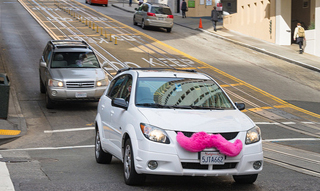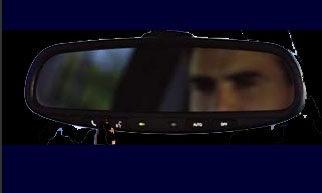Category Archives: Uncategorized
Got A Health Care Grievance? There’s A Place To Complain
by Claudia Buck, Sacramento Bee

[MyPatientRights.org is] intended to provide an easy link to the state Department of Managed Health Care, which handles consumer complaints with the state’s 122 licensed health plans. … Last year, the help center received more than 102,000 requests for assistance. … Requests for help jumped by 60 percent compared with 2013, largely because of the implementation of the Affordable Care Act, according to the department. Read More ›
Lyft Drivers, If Employees, Owed Millions More – Court Documents
by Dan Levine and Heather Somerville, Reuters

Drivers who worked for ride-hailing service Lyft in California during the past four years would have been entitled to an estimated $126 million in expense reimbursements had they been employees rather than contractors, court documents show. … The judge asked for the estimates as part of his oversight of a proposed settlement of a class-action lawsuit filed by California drivers. … Lyft agreed to settle the class-action lawsuit in January. Under the proposed deal, Lyft would pay $12.25 million, with drivers receiving an average of $56 each after attorneys’ fees and other expenses, documents show. Read More ›
Employee Surveillance: Business Efficiency Vs. Worker Privacy
by Thomas Claburn, Information Week

“Now, with the advent of almost ubiquitous network records, browser history retention, phone apps, electronic sensors, wearable fitness trackers, thermal sensors, and facial recognition systems, there truly could be limitless worker surveillance,” [a forthcoming California Law Review paper] says. … The authors argue that workplace surveillance has moved beyond a legitimate interest in productivity to shaping individual behavior. As examples of this trend, they cite productivity apps and corporate wellness programs. Read More ›
Garcetti Pushes Fingerprint-Based Background Checks For Uber And Lyft Drivers
by Laura J. Nelson, Los Angeles Times

Last year, The Times reported that four Uber drivers ticketed by [Los Angeles] airport police had criminal histories that would have barred them from becoming city taxi drivers. Last year, the top prosecutors for Los Angeles and San Francisco identified 25 Uber drivers with convictions for murder, assault, driving under the influence and other offenses. That information emerged as part of a lawsuit filed by the cities that alleges Uber misled consumers over background checks. Read More ›
What’s Our Health Data Worth?
by Jerry Beilinson, Consumer Reports

Medical records shared among doctors and hospitals are covered by HIPAA, the medical privacy law, but data shared among app developers, financial firms, and others is unregulated. … Americans are worried about how health data of all kinds is shared, according to Consumer Reports’ research conducted in 2015. Nearly everyone surveyed – 91 percent – agreed that their consent should be required whenever health information is shared. And 45 percent … found it “creepy” when an ad targeting their medical conditions popped up in a web browser. Read More ›
WhatsApp Encryption Said To Stymie Wiretap Order
by Matt Apuzzo, New York Times

If the Apple dispute is akin to whether the F.B.I. can unlock your front door and search your house, the issue with WhatsApp is whether it can listen to your phone calls. … Those who support digital privacy fear that if the Justice Department succeeds in forcing Apple to help break into the iPhone in the San Bernardino case, the government’s next move will be to force companies like WhatsApp to rewrite their software to remove encryption from the accounts of certain customers. “That would be like going to nuclear war with Silicon Valley,” said Chris Soghoian, a technology analyst with [the ACLU]. Read More ›
U.S. Communications Agency Unveils Internet Privacy Proposal
by David Shepardson, Reuters

The plan would require broadband providers to obtain consumer consent, disclose data collection, protect personal information and report breaches. Broadband providers currently collect consumer data without consent and some use that data for targeted advertising, which has drawn criticism from privacy advocates. The proposal … does not prohibit Internet providers from using or sharing customer data, for any purpose. The FCC would not extend the broadband provider privacy rules to sites such as Twitter, Google or Facebook. Read More ›
Proposed FCC Rules Would Limit How Internet Service Providers Can Use Your Data
by Jim Puzzanghera, Los Angeles Times

“Simply by using the Internet, you have no choice but to share large amounts of personal information with your broadband provider,” FCC Chairman Tom Wheeler said in an article on the Huffington Post. “You have a right to know what information is being collected about you and how that information is being used. … If you have a mobile device, your provider can track your physical location throughout the day in real time. … The bottom line is that it’s your data,” he said. “How it’s used and shared should be your choice.” Read More ›
Appeals Court Shuts Down For-Profit College Industry’s Effort To Avoid Accountability
by Chris Morran, Consumerist

“It would be strange for Congress to loan out money to train students for jobs that were insufficiently remunerative to permit the students to repay their loans,” concluded the appeals panel. “And it would be a perverse system that, by design, wasted taxpayer money in order to impose crippling, credit-destroying debt on lower-income students and graduates.” Read More ›
Online Lenders Drawing More Scrutiny By Regulators
by James Rufus Koren, Los Angeles Times

Both the state Department of Business Oversight and the [U.S. Consumer Financial Protection Bureau] have turned their attention to so-called marketplace or peer-to-peer lenders — online firms that offer loans to consumers and small businesses, then sell those loans to investors. There are now dozens of such lenders, which use online applications and speedy underwriting systems to issue loans. … That growth has attracted the attention of consumer advocates, who are concerned about how lenders protect customer data and whether they comply with state and federal lending laws. Read More ›
FCC Proposes Expanding ‘Obamaphone’ To Internet
by Tom Risen, U.S. News & World Report

FCC Chairman Tom Wheeler on Tuesday explained his proposal to expand the Lifeline program aims to assist some of the 64 million Americans who have difficulty affording Internet access. … “Internet access has become a pre-requisite for full participation in our economy and our society, but nearly one in five Americans is still not benefitting from the opportunities made possible by the most powerful and pervasive platform in history,” [Wheeler wrote.] Though often called “Obamaphone” by its critics, the Lifeline program was launched in 1985 by Ronald Reagan’s administration and offered a $9.25-per-month subsidy to help low-income Americans pay for landline phones. Read More ›
FCC Cracks Down On Verizon Wireless For Using ‘Supercookies’
by Andrea Peterson, Washington Post

The practice came to the public’s attention in late 2014, when it received criticism from privacy advocates who called the code a “supercookie” because it was almost impossible for users to avoid. … Last January, researcher Jonathan Mayer revealed evidence that others could hijack the supercookie for their own purposes: An online advertising company called Turn was using the codes to help follow people around online, he said. Turn used the supercookie to “respawn” its traditional cookies — even if users took steps to protect their privacy by removing the cookies. Read More ›
CFC, Other Groups Urge FCC To Protect Personal Privacy From Internet, Telecom and Cable Companies

The letter to Federal Communications Commission (FCC) Chairman Tom Wheeler rejects the looser regulatory framework advocated by broadband Internet service providers (ISPs). The ISPs’ approach relies in large part on existing Federal Trade Commission rules that have done little to restrain ISPs’ aggressive mining of their subscribers’ data for marketing purposes, the consumer and privacy groups warn. ISPs such as Verizon, Comcast and Cox can exploit the personal data they amass on Web surfers, cable and streaming television viewers and smartphone users – not just marketing to their own customers but also selling the information to third parties. Read More ›